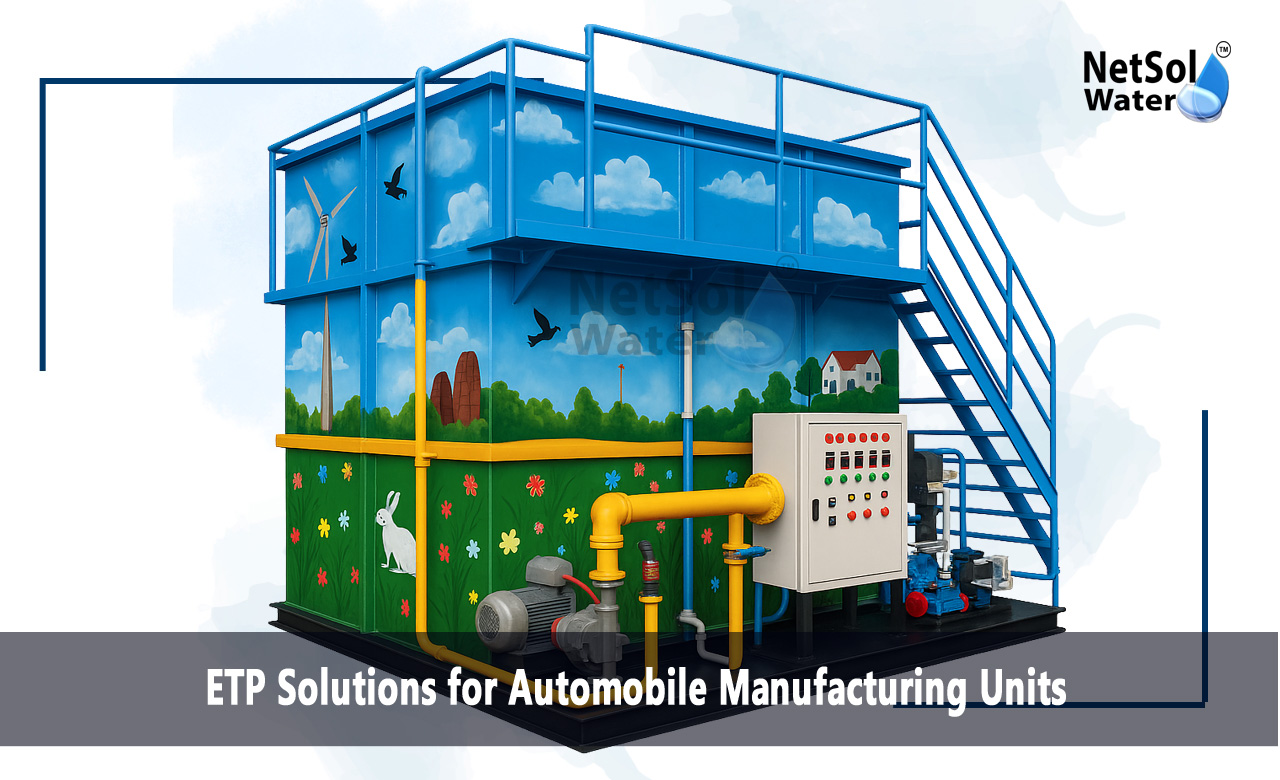ETP Solutions for Automobile Manufacturing Units
Effluent treatment plant plays an important role in modern vehicle factories. Automobile plants use water in many ways and they discharge wastewater that contains oils, chemicals and suspended solids. The right treatment system stops pollution, protects workers and helps factories meet legal standards. It also saves water, which lowers cost and supports long term operations.
Importance of ETP for Automobile Manufacturing Units
Wastewater from painting, cleaning, cooling and metal work can carry heavy load and harm local water bodies. Proper ETP Solutions for Automobile Manufacturing Units reduce that load and protect the neighbourhood. Let us have a look on some key reasons to invest in treatment systems and how each reason affects plant decisions.
Protecting water quality and local life
Factories must control contaminants before they enter rivers and drains. Treatment systems remove oils, solids and chemicals and lower risk to fish plants and people. When the plant meets standards the community gains trust and regulators face fewer issues.
Meeting legal rules and permits
Each plant must meet rules for discharge. A clear plan for monitoring, reporting and treatment helps the plant avoid fines and shutdowns. Consistent compliance keeps the production line running and preserves brand reputation.
Saving water and lowering cost
A well-designed ETP can allow reuse of treated water for cooling and cleaning. This reduces fresh water use and cuts operating cost over time. The saving helps justify initial investment in better systems.
Core Components of ETP Solutions for Automobile Manufacturing Units
Primary separation and oil removal
The first step removes large solids and free oil. Screens, grit chambers and oil skimmers take out particles and floats. This step protects later units from clogging and reduces chemical load.
Chemical and biological treatment
The next stage uses chemical dosing and biological reactors. Chemical dosing balances pH and settles fine solids. Biological reactors break down organic matter with bacteria. Together these steps lower biochemical oxygen demand and suspended solids.
Filtration and polishing
After core treatments, the water passes filters and final clarifiers. Sand filters, membrane units or activated carbon remove remaining particles and trace organics. Polishing improves clarity and makes the water fit for reuse.
Sludge handling
Treatment creates sludge and the plant must handle it safely. Thickening, dewatering and proper disposal reduce volume and cost. Good sludge handling keeps the site clean and reduces odours.
Design and Customization of Systems
Flow and load assessment
Design starts with measuring wastewater flow and pollutant load. Accurate data helps size tanks, pumps and reactors. When designers use real data the system performs reliably.
Modular layout and space needs
Many factories prefer a modular layout that allows future expansion. Modules let teams add capacity without major shutdowns. Modular systems also shorten installation time.
Automation and control
Basic automation helps maintain steady treatment performance. Sensors and control panels monitor pH, flow and turbidity. Automation reduces manual checks and helps staff focus on preventive tasks.
Operation Maintenance and Compliance
Daily checks and routine care
Operators inspect pumps, valves and sensors each day. Regular checks catch faults early and prevent failures. Simple logs for chemicals levels and equipment status help with audits.
Preventive maintenance
Scheduled maintenance of pumps, blowers and filters keeps performance high. Replacing wear items before failure cuts downtime and lowers repair cost. Training staff on basic repair tasks improves response time.
Monitoring, reporting and audits
Continuous monitoring of discharge parameters ensures the plant meets permit limits. Clear reporting supports audits and builds trust with authorities. When teams follow a monitoring plan they reduce the risk of penalties.
Conclusion
ETP Solutions for Automobile Manufacturing Units help protect water, conserve resources and keep factories in compliance. A good system starts with accurate design, follows through with proper components and stays effective with steady operation and care. This approach lowers cost and reduces environmental impact while keeping production stable. Contact our team to learn more about tailored treatment options or to request a consultation. We will review your plant needs and offer a clear plan to improve your effluent handling and reuse practices.
Contact Netsol Water at:
Phone: +91-9650608473, Email: enquiry@netsolwater.com



